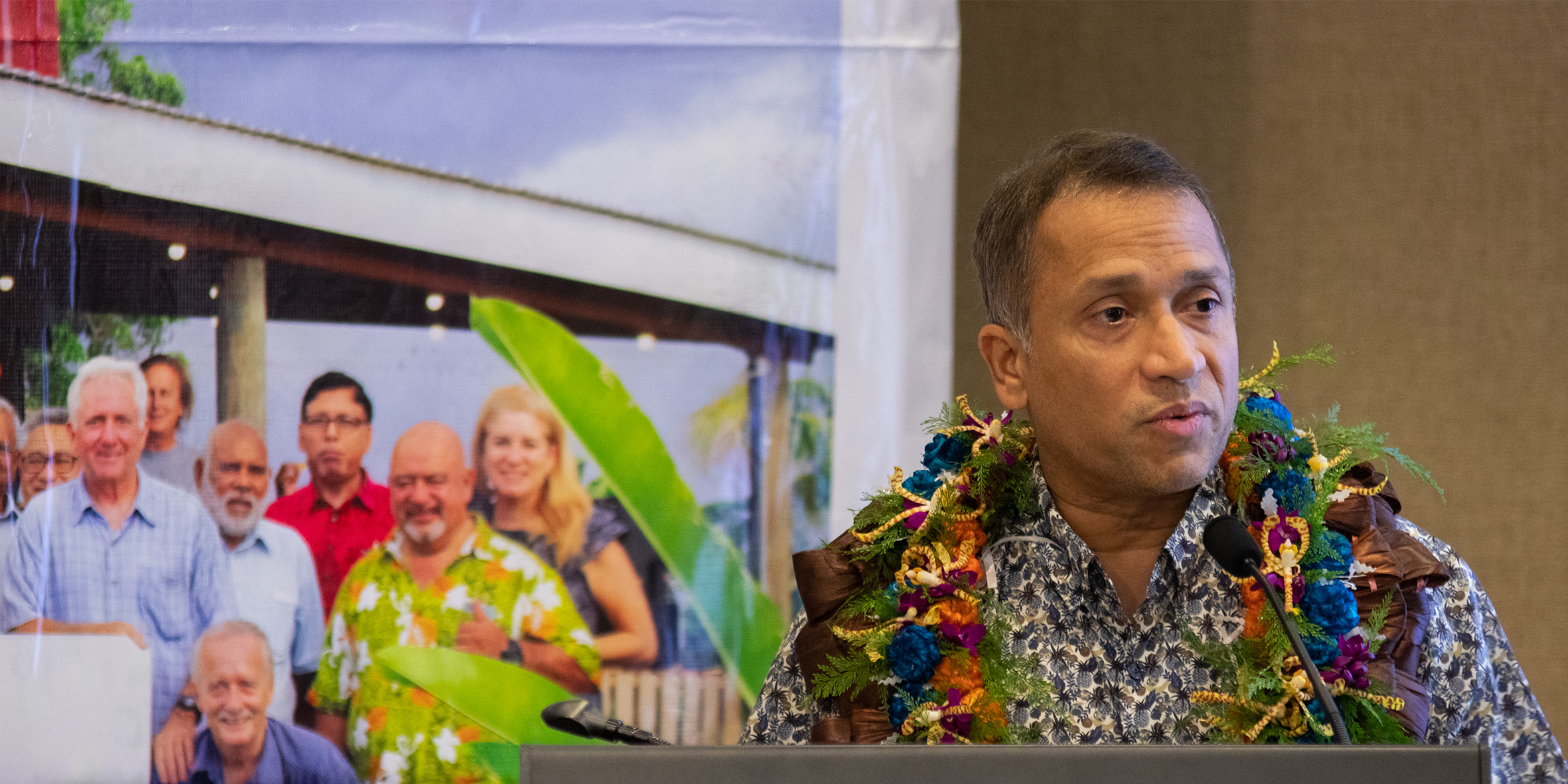February 2020
Strengthening Partnerships for Sustainable Climate Financing in the Pacific

At the recent launch of the Farmer Organisations for Africa Caribbean and the Pacific – FO4ACP Programme, United Nations Resident Coordinator Sanaka Samarasinha said the role of farmer organisations offered a new paradigm for partnerships in the Pacific IMAGE: First Fighter
In the Pacific, there is limited progress to country driven partnership platforms for dialogue and consultation on development priorities.
“The reality in the Pacific is that we are still only scratching the surface in terms of the number, and quality, of partnerships required to deliver the Sustainable Development Goals (SDG).”
United Nations Resident Coordinator Sanaka Samarasinha says dialogue, particularly in the Pacific, provides a strong platform to catalyze necessary collaborative action.
“The scope and complexity of the transformations required for achieving the 2030 Agenda for Sustainable Development and the 17 SDGs that are at its core are unprecedented.”
“As a result, no government or stakeholder will be able to address the multi-sectoral, cross-pillar global challenges of today alone,” he said.
Fostering Development Partnerships for the SDGs
Last month the United Nations Development Partners Dialogue Forum took place for the very first time at Suva’s Holiday Inn (28/1/20).
The dialogue Samarasinha says is the United Nations response to development partners who have demanded for regular updates on its work which in recent years have focused predominantly on climate change.
“It remains the single most urgent threat to the survival and livelihood for citizens of the Small Island Developing States (SIDS) of the Pacific.”
“Addressing these threats requires a wide array of adaptation measures, at a cost that far exceeds many countries’ financial capacities,” he said.
“While many Pacific SIDS have been able to access some funding through multilateral funding partners from substantial vertical funding sources, capacities in countries to manage these funds and delivering of results on the ground are key areas of concern and need.”
Climate Financing in the Pacific
The Pacific Island Farmers Organisation Network (PIFON) for the very first time entered policy and development discussions with various stakeholders at the United Nations Development Partners Dialogue Forum.
PIFON Manager Kyle Stice who was part of the Panel Discussion says three quarters of the Pacific population live in rural areas and are largely reliant on agriculture and fisheries based livelihoods.
A figure he says will be critical to the future of agriculture in the region.
“The problem with current approaches to climate change is that they tend to ignore current threats and focus on ill-defined climate change issues per se.”
“In 2015, South Pacific Community published a book called Vulnerability of Pacific Agriculture and Forestry to Climate Change.”
“It’s the first comprehensive study on the impact of climate change on agriculture in the Pacific and brought together 23 main authors over 2 years.”
“One of the high level conclusions that came out of this book is that climate change is likely to impact agriculture by amplifying pressure of existing threats,” he said.
“The pragmatic approach therefore is to improve our capacity to address existing threats in agriculture – climate extremes, pest and disease outbreaks etc and also be looking at the knowledge gaps and identify future threats.”
While addressing the panel discussion on the implementation challenges for climate financing in the region, Stice says there is still a long way ahead for the Pacific.
“There appears to be a significant gap between the farmers of the Pacific who are working to grow food for their families and our countries and those that are working to access and channel resources to support climate change threats.”
“It’s one of the greatest challenges facing governments and development partners in terms of accessing and channeling climate financing to address the ‘real’ threats facing the agriculture sector,” he said.
Farmer Organisations as Development Partners
Stice believes a critical component of the solution lies in Farmer Organisations.
“Not just farmer organisations in name, but strong, vibrant, representative organisations that can deliver effective and relevant services to their members.”
“I am proposing that Farmer Organisations can be highly effective development partners to help address this enormous threat on our rural livelihoods and food security,” he said.
Stice said governments and development partners should take notice of their work in their respective countries.
“Give them an opportunity to have a voice in your planning processes and most importantly utilize their infrastructure in the delivery of key services.”
